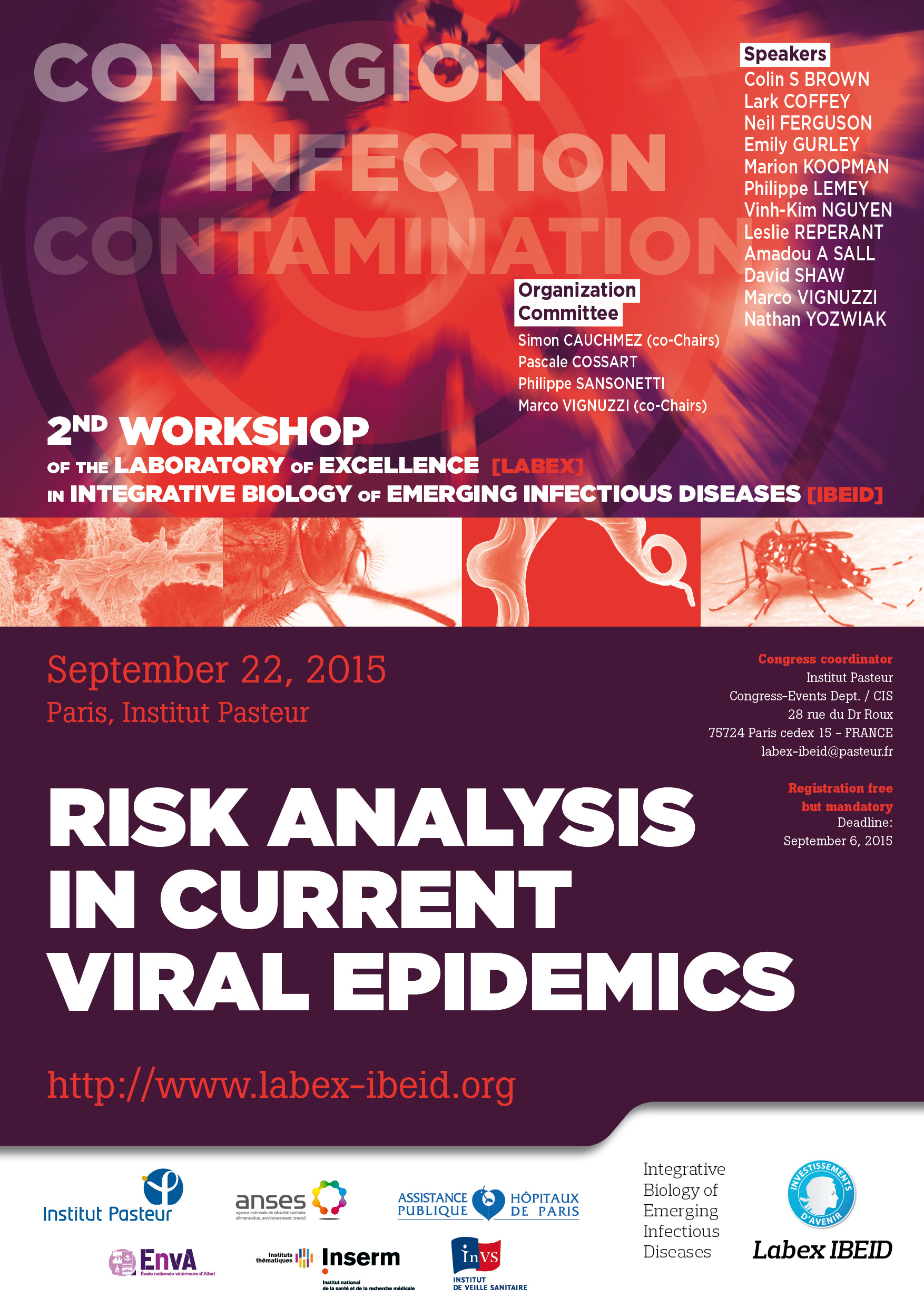
September 04, 2015
Bulletin interne de l'Institut Pasteur


Dates for your diary
- World Sepsis Day on September 11, 2015 – Fighting deadly infections
On September 11, the Institut Pasteur will host a conference for World Sepsis Day (WSD: http://www.world-sepsis-day.org/). Sepsis remains a major public health concern – the number of sepsis-related hospital admissions has almost doubled over the past 10 years. In industrialized countries, where it mainly affects the elderly, sepsis claims as many lives as heart attacks.
Sepsis in developing countries often affects babies and is the second leading cause of death for women following childbirth.
The aim of the WSD is to raise awareness among the general public and key decision-makers of the scale of this public health problem, and to encourage the development of effective research to help tackle the challenges involved.
This year, the conference will focus on epidemiology, diagnostics, non-bacterial sepsis (viruses, malaria, fungi), short-, medium- and long-term consequences, and treatment. The program is available for download at http://journee-mondiale-sepsis.com/.
The conference will be held in the CIS, starting at 9am.
The event is free but registration is required. You can register on the dedicated website.
-
Second Symposium in Integrative Biology of Emerging Infectious Diseases (LabEx IBEID)
“Risk Analysis in Current Viral Epidemics”
 The second workshop of the Laboratory of Excellence (LabEx) in Integrative Biology of Emerging Infectious Diseases (IBEID) will take place in Paris, France, on September 22nd 2015 in the Institut Pasteur.
The second workshop of the Laboratory of Excellence (LabEx) in Integrative Biology of Emerging Infectious Diseases (IBEID) will take place in Paris, France, on September 22nd 2015 in the Institut Pasteur.
The LabEx IBEID addresses the topic of emergence and reemergence of infectious diseases in its most challenging aspects: conditions and anticipation of occurrence and transmission, quick identification of etiological agents, molecular mechanisms of infection, bases of the crossing of species barriers, mechanisms of resistance, bases of host and, individual variation in susceptibility.
This last year has witnessed a number of significant viral threats, continued sporadic cases of MERS coronavirus infections imported into countries around the world, the massive expansion of the Chikungunya epidemic across South and North America, the Ebola crisis in west African countries.
This year, the IBEID Workshop will re-examine these recent challenges through keynote lectures that will cover the lessons learned during outbreak intervention, the epidemiology and dynamics of these recent epidemics, and the biological and ecological aspects of these diseases and their vectors and hosts.
IBEID partnership is made up of six institutions: Institut Pasteur, Inserm, AP-HP, EnvA, ANSES and InVS.
Online Registration is free but required before September 6, 2015.